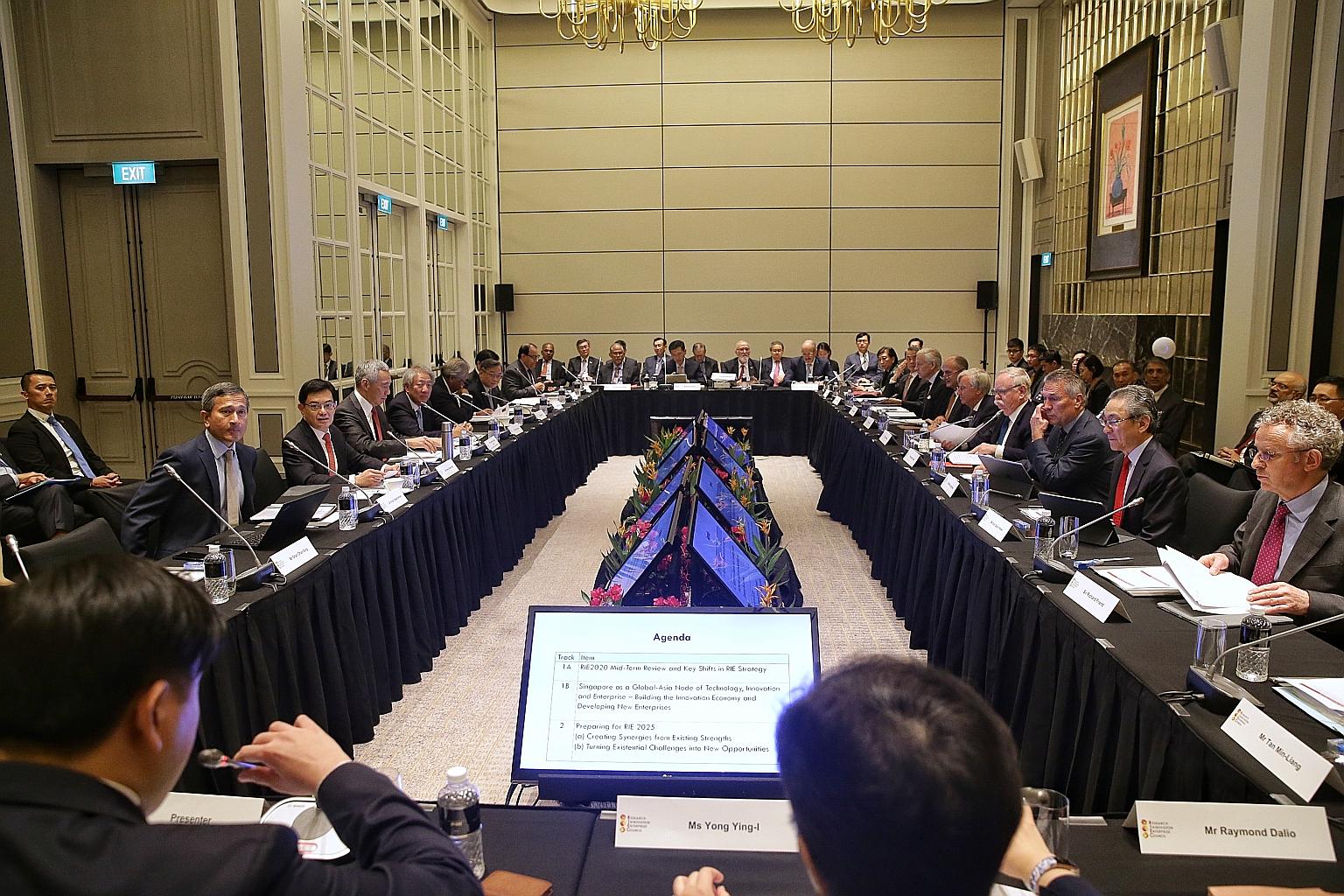$700m boost for research on AI, food and cell therapy
Sign up now: Get ST's newsletters delivered to your inbox

Prime Minister Lee Hsien Loong (middle of left row) chairing the Research, Innovation and Enterprise Council meeting at The St Regis Singapore hotel yesterday. With him were Foreign Minister Vivian Balakrishnan, Finance Minister Heng Swee Keat, Deputy Prime Minister Teo Chee Hean and other ministers and council members.
ST PHOTO: KEVIN LIM
The future of food, medicine and digital technology will form the backbone of long-term research plans to keep Singapore competitive, Finance Minister Heng Swee Keat said yesterday.
But these goals will not be at the expense of basic research, which takes longer to bear fruit, he said as he gave an update on Singapore's research progress and future plans.
Mr Heng, who chairs the National Research Foundation, announced that over $700 million will go into the three areas.
He was speaking to reporters after the Research, Innovation and Enterprise (RIE) Council meeting, together with Prime Minister Lee Hsien Loong, who chairs the council, and fellow council members Chan Chun Sing and Lawrence Wong.
Digital capabilities will get a large chunk: Over $500 million will be set aside to build up artificial intelligence systems and meet national cyber-security needs. The sum will also boost Singapore's supercomputing capabilities and fund the deployment of robots and automation.
Another $80 million will go towards ramping up cell manufacturing capabilities for cell therapy - hailed as the future of medicine.
And $144 million will be invested in food research, including urban farming and lab-grown meat.
The funds are part of $19 billion that was budgeted in 2016, under the RIE2020 plan for Singapore's science and technology research over the next five years. Food, healthcare and the digital economy were earmarked as research targets following a mid-term review of the plan.
PM Lee said success will depend on three factors: Singapore must continue to emphasise science and technology in society, develop a strong core of talent, and build partnerships with foreign countries and institutions to pool expertise and take on more ambitious projects.
"We cannot afford to have people fearful and distrustful of science and held captive by totally groundless anti-scientific beliefs," he said.
Speaking on manufacturing's changed nature, Mr Chan, the Trade and Industry Minister, said: "Our ability to position ourselves carefully in various niche areas across the entire global value chain will be critical to our competitiveness."
Mr Wong, Minister for National Development, said Singapore can develop urban solutions and be, for companies, "a living laboratory to pilot, test-bed and eventually scale up their solutions".


